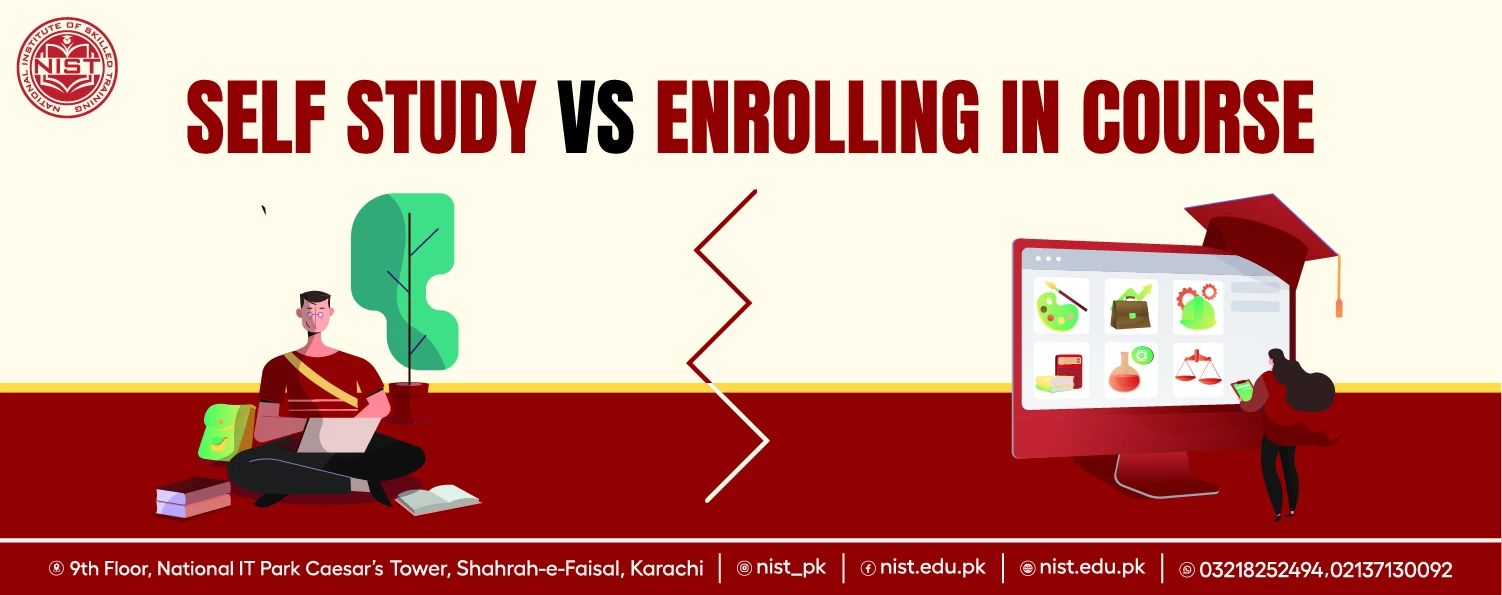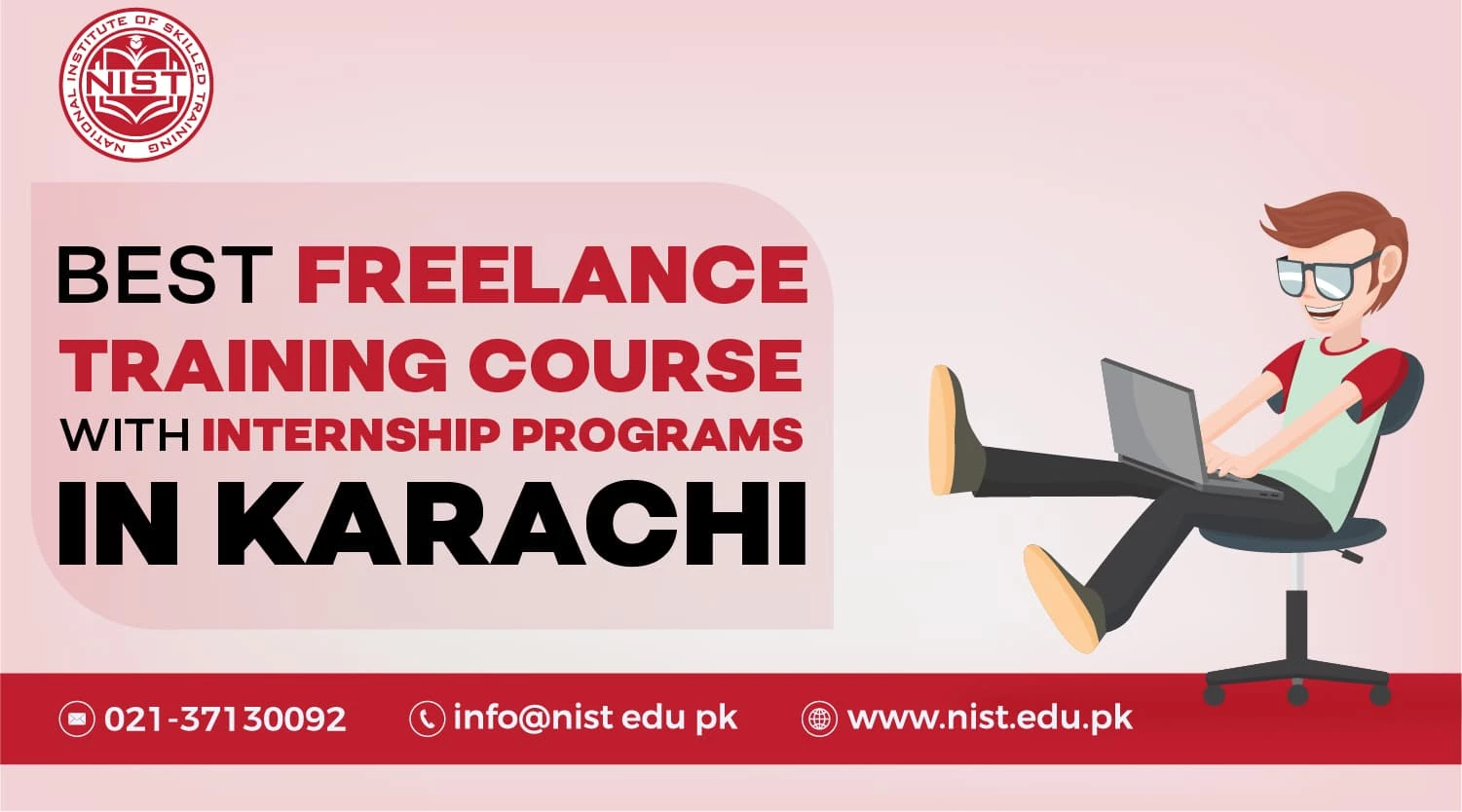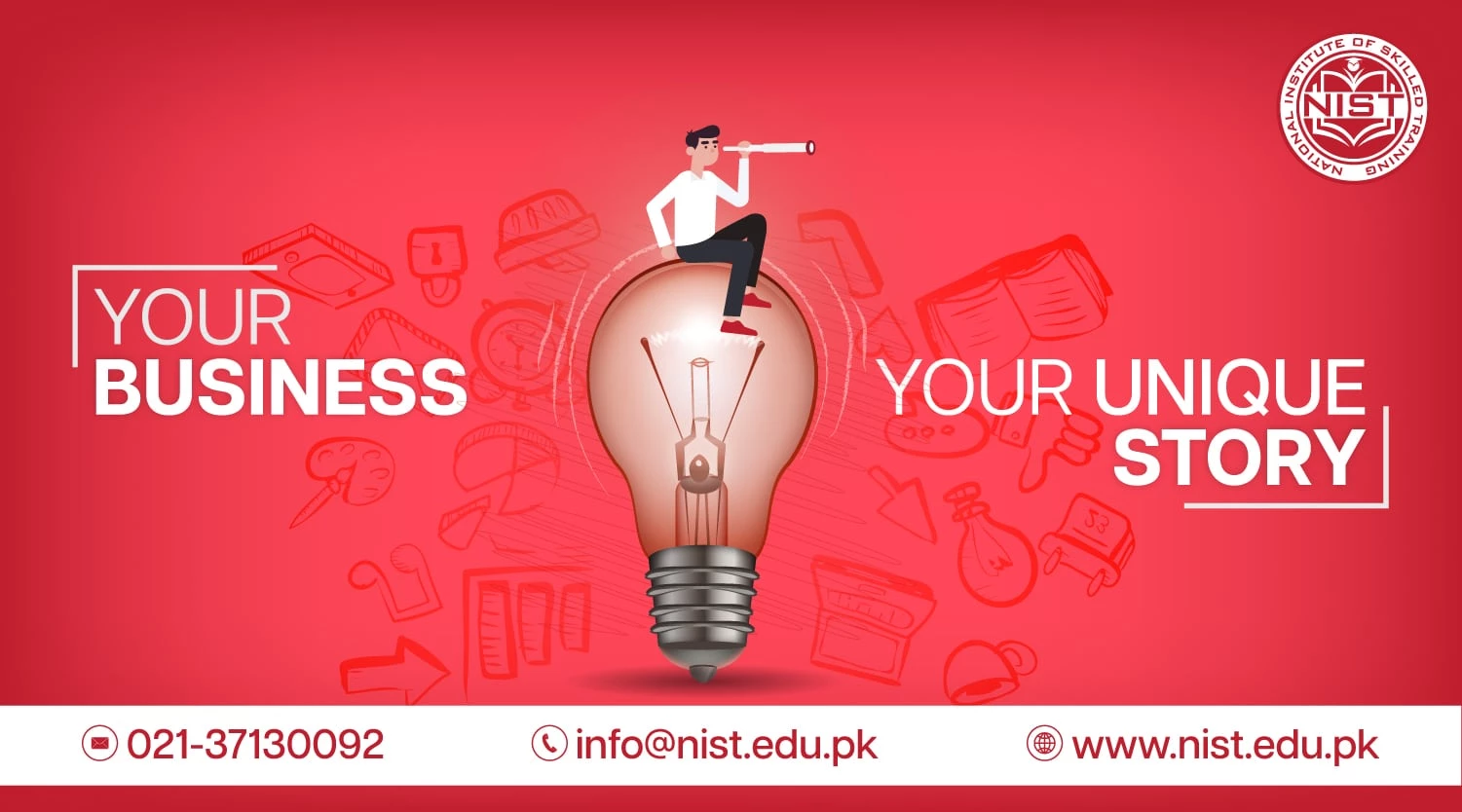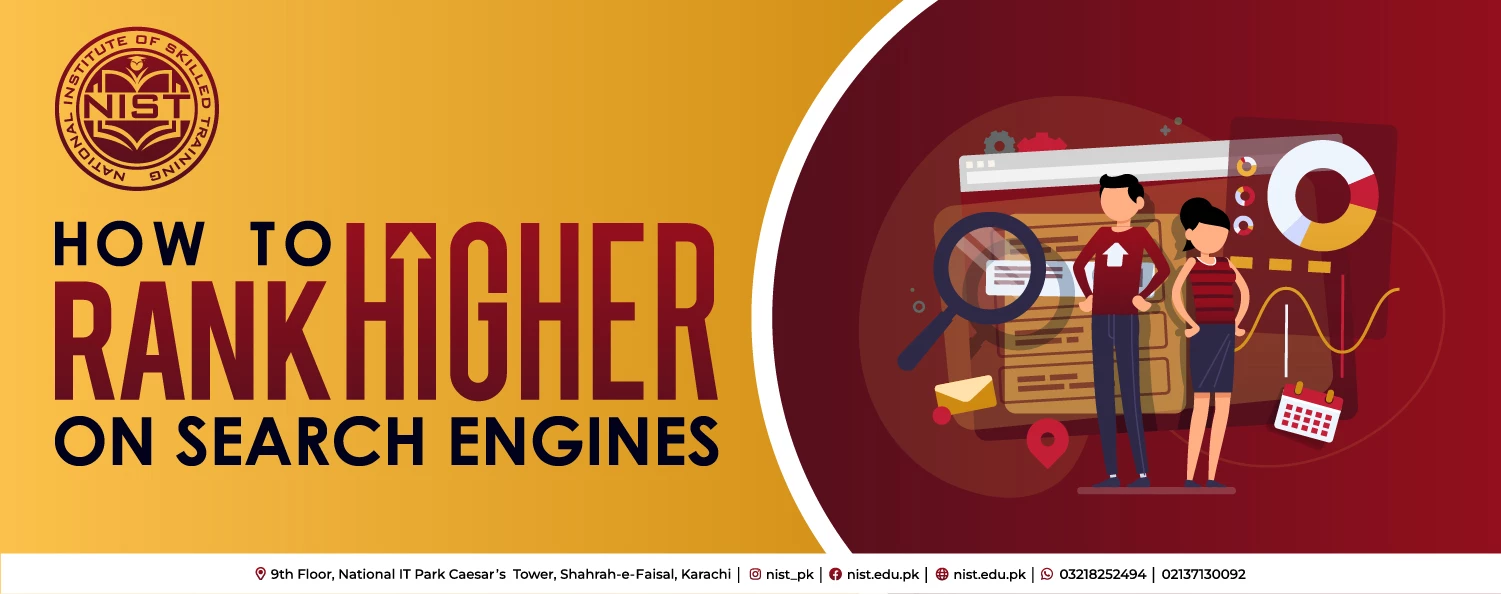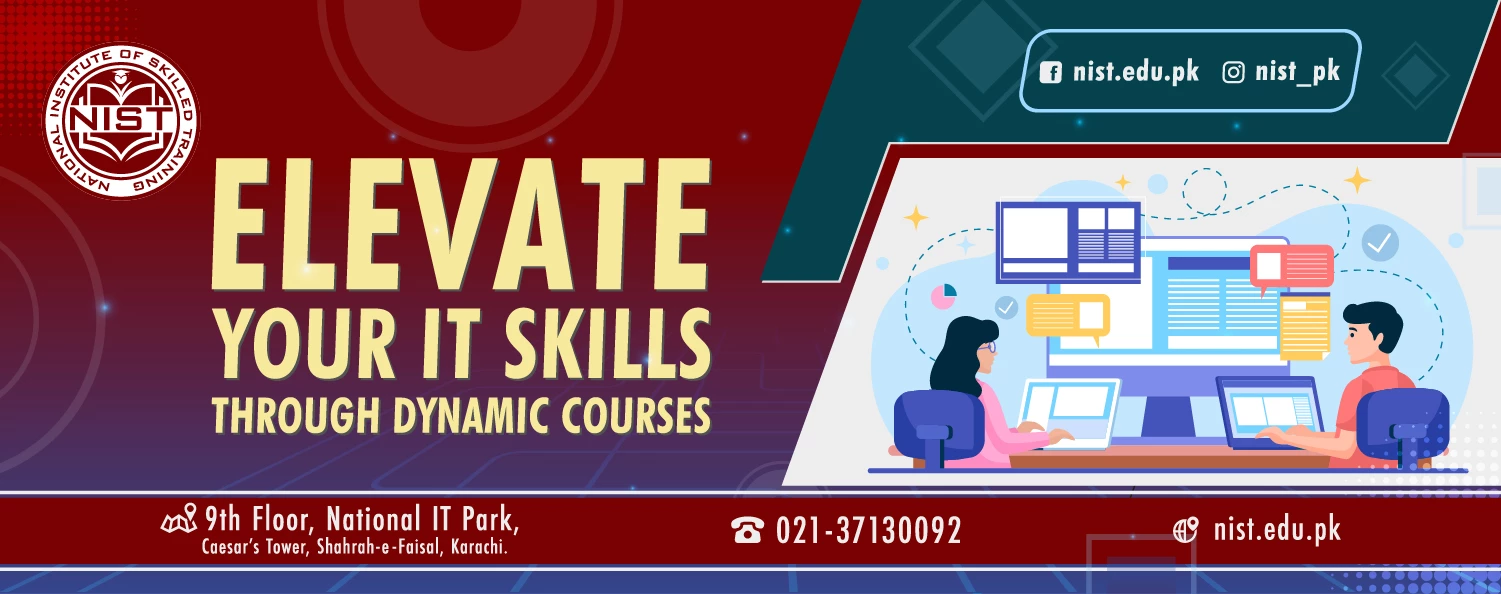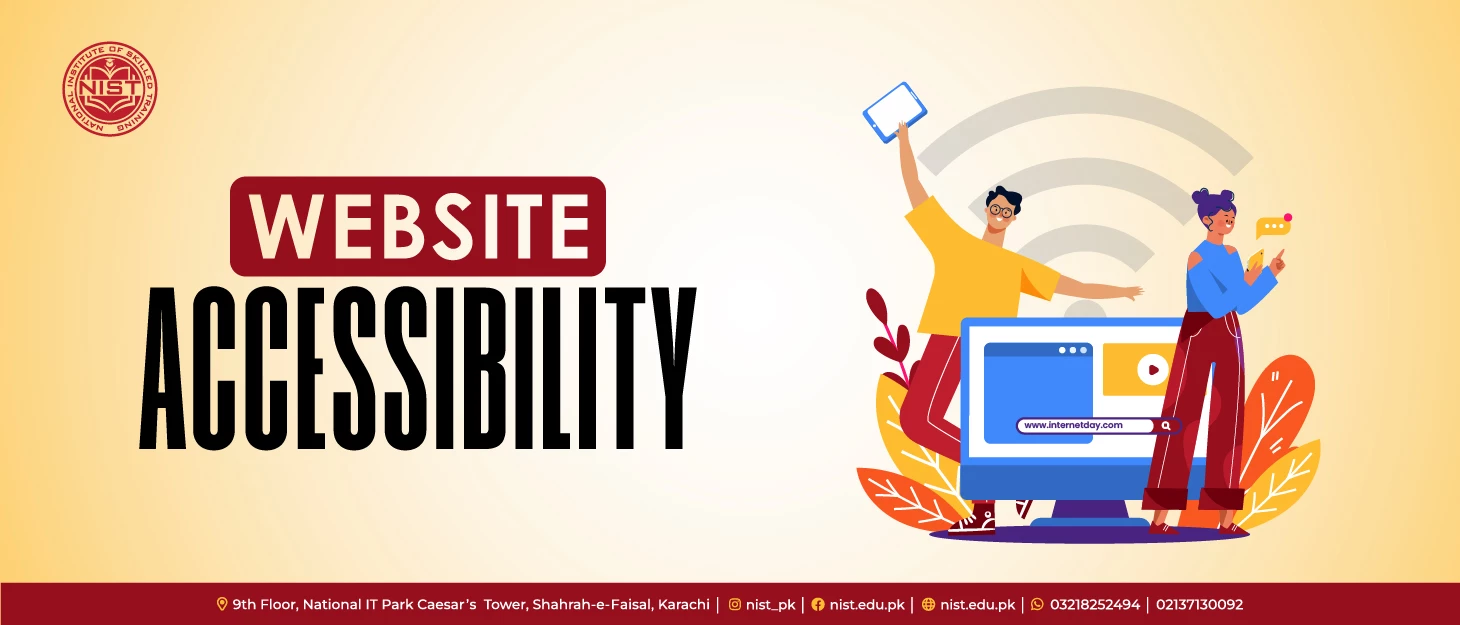Today, the pursuit of knowledge has become more accessible than ever. With the advent of the internet, a wealth of information is available at our fingertips, allowing individuals to learn at their own pace. However, this accessibility has sparked a significant debate i.e. should one engage in self-study or enroll in a formal course? Both methods have their merits and drawbacks, and the choice often depends on personal learning styles, goals, and circumstances.
In this blog, we will explore the pros and cons of self-study and enrolling in a course, helping you make an informed decision about your educational journey.
Understanding Self-Study
Self-study refers to the process of learning independently, without the guidance of a formal instructor or structured curriculum. This method allows learners to explore topics of interest at their own pace, utilizing various resources such as books, online articles, videos, and educational platforms.
Pros of Self-Study
· Flexibility :
: One of the most significant advantages of self-study is the flexibility it offers. Learners have the flexibility to decide when and where to study, enabling them to integrate their education seamlessly with their personal and professional responsibilities. This is particularly beneficial for those with busy schedules or family responsibilities.
· Personalized Learning:
Self-study allows individuals to tailor their learning experience to their unique needs and preferences. Learners can focus on areas they find challenging, skip topics they already understand, and explore subjects that genuinely interest them.
· Cost-Effective:
Many self-study resources are free or low-cost, making this method an economical choice for those on a budget. Online platforms, libraries, and open educational resources provide a wealth of information without the financial burden of tuition fees
· Development of Self-Discipline:
Engaging in self-study requires a certain level of self-discipline and motivation. Learners must set their own goals, create study schedules, and hold themselves accountable for their progress. This can foster valuable skills that are beneficial in both personal and professional contexts.
Cons of Self-Study
· Cost:
One of the most significant drawbacks of enrolling in a course is the financial investment. Tuition fees, textbooks, and other associated costs can add up, making this option less accessible for some individuals.
· Less Flexibility:
Courses often have set schedules and deadlines, which may not align with everyone’s personal or professional commitments. This lack of flexibility can be challenging for those with busy lives or unpredictable schedules.
· One-Size-Fits-All Approach:
While courses provide structure, they may not cater to individual learning styles or preferences. Some learners may find the pace too fast or too slow, leading to frustration or disengagement.
· Limited Focus on Personal Interests:
In a formal course, the curriculum is predetermined, which may not always align with a learner’s specific interests or goals. This can lead to a lack of enthusiasm for the material being covered.
Making the Right Choice for You
The choice between self-study and enrolling in a course ultimately depend on your individual learning preferences, objectives, and circumstances.
· Learning Style: Reflect on how you learn best. Do you thrive in structured environments with guidance, or do you prefer the freedom to explore topics at your own pace? Understanding your learning style can help you determine which method is more suitable for you.
· Goals: Consider your educational goals. Are you looking to gain a specific skill for your career, or are you pursuing knowledge for personal enrichment? If you have a clear goal in mind, it may influence your choice of self-study or formal courses.
· Time and Commitment: Assess your availability and commitment level. If you have a busy schedule, self-study may offer the flexibility you need. However, if you can dedicate time to a structured program, enrolling in a course may provide the support and accountability you seek.
· Budget: Evaluate your financial situation. If cost is a significant factor, self-study may be the more viable option. However, consider the potential return on investment that a formal course may offer in terms of career advancement and networking opportunities.
· Hybrid Approach: Many learners find success in a hybrid approach, combining self-study with formal courses. This allows individuals to benefit from the structure and guidance of a course while also exploring topics of personal interest independently.
Conclusion
The debate between self-study and enrolling in a course is not a one-size-fits-all discussion. Both methods have their advantages and disadvantages, and the right choice depends on individual preferences, goals, and circumstances. By understanding the pros and cons of each approach, you can make an informed decision that aligns with your learning style and aspirations. Whether you choose to embark on a self-study journey or enroll in a formal course, the most important thing is to remain committed to your education and embrace the lifelong learning process.
If you want to study graphic design or digital marketing, enrolling in NIST Karachi is an excellent choice. NIST (National Institute of Skilled Training) offers comprehensive courses that equip students with the skills and knowledge necessary to thrive in these dynamic fields.
